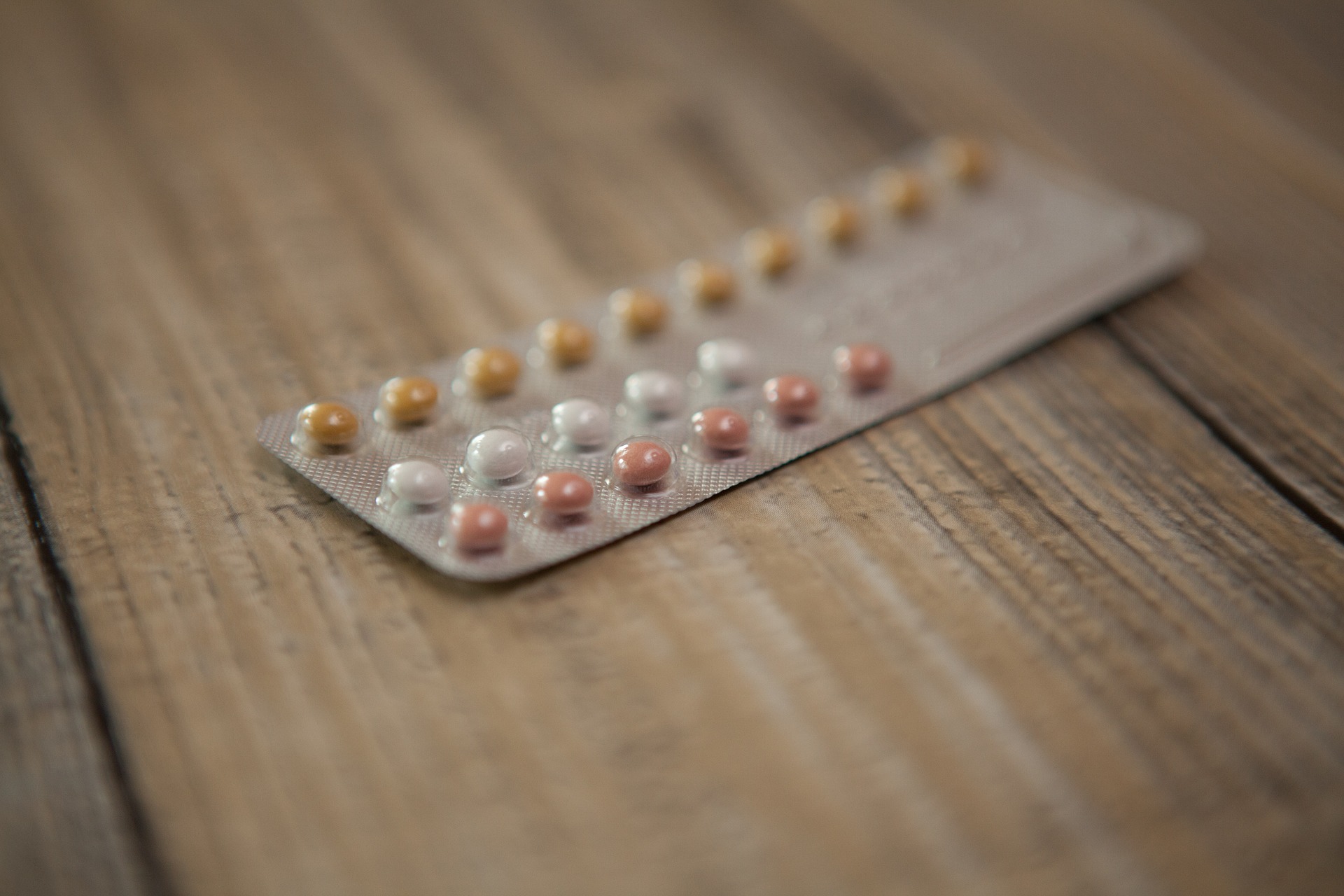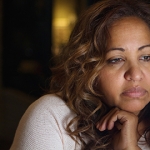Many women have concerns about the side effects of hormonal contraceptives, including oral contraceptives, depot preparations, and hormonal IUDs and vaginal rings. Potential side effects include bloating, breast tenderness, and weight gain. In addition, some women may experience depression or mood swings, side effects that may be particularly concerning to women with histories of depression. Despite the prevalence of hormonal contraceptive usage, few studies have explored the association between hormonal contraceptive use and mood disturbance.
One of the largest studies (published in 2013) included 6,654 sexually active non-pregnant women participating in the National Longitudinal Study of Adolescent Health. In this cohort of women aged 25–34 years, the researchers compared oral contraceptive users with other sexually active women who were using either non-hormonal contraception or no contraception. Depressive symptoms were assessed with the Center for Epidemiologic Studies Depression Scale.
What they found was that users of hormonal contraceptives had lower mean levels of depressive symptoms and were less likely to have attempted suicide in the previous year (odds ratio = 0.37, 95% confidence interval: 0.14, 0.95) than women using other forms of contraception or no contraception.
While this study may provide some reassurance to women concerned about the impact of oral contraceptives on their mood, many questions remain. This was a cross-sectional study in which women were evaluated at a single time point. One might hypothesize that women who developed mood symptoms after initiating treatment with an hormonal contraceptive most likely stopped taking the contraceptive, so that in this study the hormonal contraceptive users as a group consisted primarily of women who tolerated these contraceptives whereas the non-user group may have contained a higher number of women who were unable to tolerate hormonal contraceptives.
Newer Data on Hormonal Contraceptives from Denmark
A more recent study published in JAMA Psychiatry explored the association between hormonal contraceptive use and depression in a nationwide prospective cohort study of women in Denmark. This study focused only on women who had no history of psychiatric illness (as documented in the medical record), no antidepressant use, and no hormonal contraceptive use before the age of 15. Information from the nationwide registers were used to identify use of hormonal contraception, diagnosis of depression, use of antidepressants, and potential confounding variables.
Over one million women were included in the analysis, with a mean age of 24.4 years. The mean duration of follow-up was 6.4 years. Compared to nonusers, the users of hormonal contraceptives had a higher relative risk (RR) of initiating treatment with an antidepressant
In addition, the magnitude of that risk appeared to vary according to type of contraceptive used:
- Combined oral contraceptives: RR of 1.23 (95% CI, 1.22-1.25),
- Progestogen-only pills: RR of 1.34 (95% CI, 1.27-1.40),
- Transdermal patch (norgestrolmin): RR of 2.0 (95% CI, 1.76-2.18),
- Vaginal ring (etonogestrel): RR of 1.6 (95% CI, 1.55-1.69),
- Levonorgestrel IUD: RR of 1.4 (95% CI, 1.31-1.42).
For depression diagnoses, similar or slightly lower estimates of risk were observed.
The researchers also noted that these risks generally decreased with increasing age. Adolescents (age range, 15-19 years) using combined oral contraceptives had an RR of a first use of an antidepressant of 1.8 (95% CI, 1.75-1.84), and the risk was even higher in those using progestin-only pills, with an RR of 2.2 (95% CI, 1.99-2.52).
Oral Contraceptives and Risk for Suicide
The same research group also explored the association between hormonal contraceptive use and suicide attempt and suicide in a nationwide prospective cohort study of women in Denmark. (These results were reported in the American Journal of Psychiatry in November 2017.)
In this analysis, nearly half a million women were followed on average for 8.3 years. In this cohort, 6,999 suicide attempts and 71 suicides were identified. Compared to women who never used hormonal contraceptives, the relative risk among current and recent users was 1.97 (95% CI=1.85-2.10) for suicide attempt and 3.08 (95% CI=1.34-7.08) for completed suicide. Risk estimates for suicide attempt varied according to type of contraceptive used:
- Combined oral contraceptives: RR of 1.91 (95% CI=1.79-2.03)
- Progestogen-only pills: RR of 2.29 (95% CI=1.77-2.95)
- Vaginal ring (etonogestrel): RR of 2.58 (95% CI=2.06-3.22)
- Transdermal patch (norgestrolmin): RR of 3.28 (95% CI=2.08-5.16)
The association between hormonal contraceptive use and a first suicide attempt peaked after about 2 months of use.
Clinical Implications
These two studies from Denmark show that hormonal contraceptives are associated with a higher risk of depression, suicide attempt, and suicide. Not only is this finding statistically significant, the magnitude of the effect is fairly robust; the relative risk for antidepressant use or depressive symptoms ranges from 1.23 to 2.0, and the relative risk for suicide attempt ranges from 1.91 to 3.28. It is interesting that relative risk for suicide attempt is higher than risk for depressive illness. It is unlikely that these findings suggest that hormonal contraceptives are more likely to increase suicidal behaviors than depressive symptoms; however, it is possible that treatment of depression is under-reported.
Also noteworthy is the observation that hormonal preparations which are thought to be less likely to cause side effects because they deliver lower systemic levels of hormones — for example, the vaginal ring and the levonorgestrel IUD — were also associated with increased risk for depressive symptoms and suicide.
Because the two Danish studies did not include women with a history of depression, we cannot be certain how hormonal contraceptives may affect the course of illness in women with current depression or histories of depressive illness. Nonetheless, we recommend that before starting any hormonal contraceptive, women should talk to their clinicians about their history of depression. Most importantly, women with a history of depression should be attentive to potential mood changes after starting a hormonal contraceptive.
Ruta Nonacs, MD PhD
Keyes KM, Cheslack-Postava K, Westhoff C, Heim CM, Haloossim M, Walsh K, Koenen K. Association of hormonal contraceptive use with reduced levels of depressive symptoms: a national study of sexually active women in the United States. Am J Epidemiol. 2013 Nov 1;178(9):1378-88
Skovlund CW, Mørch LS, Kessing LV, Lange T, Lidegaard Ø. Association of Hormonal Contraception With Suicide Attempts and Suicides. Am J Psychiatry. 2017 Nov 17.
Skovlund CW, Mørch LS, Kessing LV, Lidegaard Ø. Association of Hormonal Contraception With Depression. JAMA Psychiatry. 2016 Nov 1;73(11):1154-1162.








This side effect has been known since oral contraceptives were introduced. Multivitamins were felt to be helpful for it. I have had goood success in adding pyridoxine 25-50 mg daily for women experiencing depression after starting estrogen after ovarectomy or for post menopausal woman. One woman I treated cane to me after a 3 yr history of treatment resistant depression who was on depot injections of estrogen. Her depression remitted after a week on pyridoxine. I usually treat every depressed patient with pyridoxine empirically, the success yield is low but gratifying in the few cases it works.
This is a very interesting comment. I am aware of the use of pyridoxine for PMDD, but I have not seen its use in perimenopausal women. Do you have any references for that?
While we have long known that hormonal contraceptives may be associated with mood changes, it has been unclear exactly how many women are affected. In addition, I think the information regarding type of contraception and risk is very interesting and may be helpful for clinicians in terms of educating their patients and making appropriated choices.